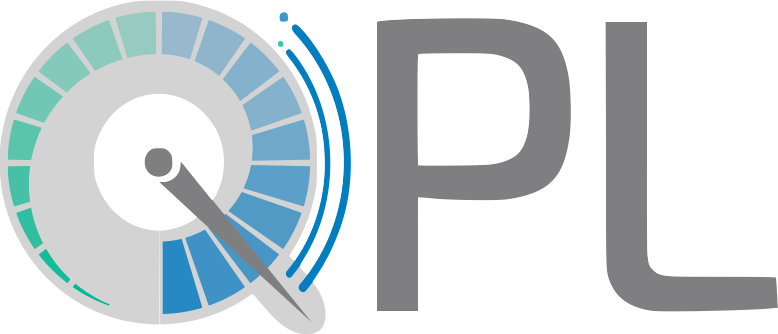The Quantum Performance Laboratory (QPL) is a research and development (R&D) group within Sandia National Laboratories. We develop and deploy cutting-edge techniques for assessing the performance of quantum computing hardware, serving the needs of the U.S. government, industry, and academia.
The QPL studies the performance of quantum computing devices, and develops practical methods to assess it. Our research produces:
- insight into the failure mechanisms of real-world quantum computing processors,
- well-motivated metrics of low- and high-level performance,
- predictive models of multi-qubit quantum processors, and
- concrete, tested protocols for evaluating as-built experimental processors.
- J. Hines et al., Demonstrating scalable randomized benchmarking of universal gate sets. Phys. Rev. X 13, 041030 (Nov. 2023)
- A. Hashim et al., Benchmarking quantum logic operations relative to thresholds for fault tolerance. npj Quantum Information 9, 109 (October 2023).
- T. Lubinski et al., Application-Oriented Performance Benchmarks for Quantum Computing. IEEE Transactions on Quantum Engineering 4, 1-32 (April 2023).
- T. Proctor et al., Scalable randomized benchmarking of quantum computers using mirror circuits. Physical Review Letters 129, 150502 (October 2022).
- R. Blume-Kohout et al., A taxonomy of small Markovian errors. PRX Quantum 3, 020335 (May 2022)
- A. R. Mills et al., Two-qubit silicon quantum processor with operation fidelity exceeding 99%. Science Advances 8, abn5130 (April 2022).
- M. Mądzik et al., Precision tomography of a three-qubit electron-nuclear quantum processor in silicon. Nature 601, 348–353 (January 2022).
- A DOE Science Highlight, “Probing the Inner Workings of High-Fidelity Quantum Processors,” showcased our recent collaborative research with UNSW (Sydney), and the growing impact of gate set tomography.
- A Nature News & Views editorial, “Silicon qubits move a step closer to achieving error correction” highlighted our 2022 Nature cover article “Precision tomography of a three-qubit electron-nuclear quantum processor in silicon“. This result’s significance, and the role played by gate set tomography, was explained in a YouTube video and news releases by Sandia and ScienceInPublic.
- IEEE Spectrum published “New Standards Rolling Out for Clocking Quantum-Computer Performance” covering our 2022 Nature Physics paper “Measuring the performance of quantum computers“. The news was also picked up by HPCWire, NewsBreak, Hardware-Specs, and Science Daily.
- An IonQ blog post, “Benchmarking our next-generation system” highlighted Timothy Proctor’s 2021 collaborative paper “Application-Oriented Performance Benchmarks for Quantum Computing” with the Quantum Economic Development Consortium (QED-C).
- Quantum commissioned a Perspective, “Gate set tomography is not just hyperaccurate, it’s a different way of thinking“, covering our 2021 article “Gate set tomography“.
- Quantum commissioned a Perspective, “Crosstalk diagnosis for the next generation of quantum processors“, highlighting our 2020 article “Detecting crosstalk errors in quantum information processors“.
- April 7, 2025: Welcome Jordan Hines, who has joined the QPL as a staff scientist.
- April 1, 2025: The QPL is excited to announce Assessing Performance of Quantum Computers (APQC) 2025, to be held Sept. 22-25, 2025 in Estes Park, CO!
- March 11, 2025: Congratulations to Jordan Hines for completing his Ph.D. thesis!
- November, 2023: Physical Review X has published “Demonstrating scalable randomized benchmarking of universal gate sets,” which introduces and demonstrates the first scalable randomized benchmarking protocol for universal (non-Clifford) gates.
- September, 2023: Welcome to Riley Murray, who has joined the QPL as a staff scientist.
- April, 2023: IEEE Transactions on Quantum Engineering has published “Application-Oriented Performance Benchmarks for Quantum Computing“, by Tim Proctor and a cadre of QED-C researchers, about a pioneering suite of application-centric benchmarks.

